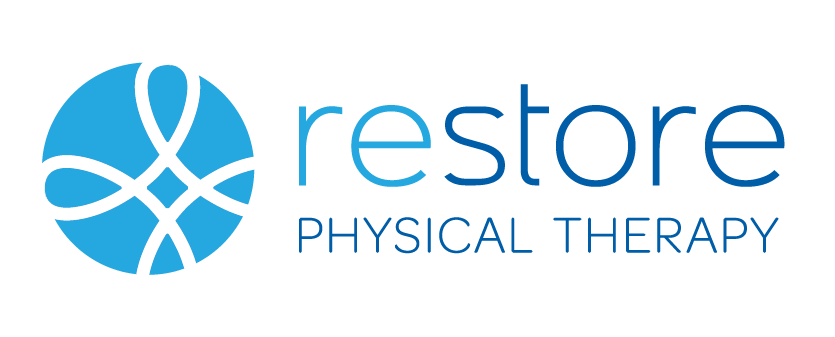The Real Recovery Timeline After ACL Surgery
What Parents of High School Athletes Need to Know
When Lincoln School junior Julianna Casey tore her ACL at the start of her 2024 lacrosse season, she and her family looked for a program that could support her recovery after surgery and initial rehab.
Her parents’ concerns echoed the two questions we hear most often from families facing an ACL injury:
“When will she be really ready to play?” and “How do we know she won’t get hurt again?”
“Her recovery was extremely important to us, and we were unsure of when she really should go back to play,” said Julianna’s mom, Tara. “We were scared of her re-tearing her ACL since we had heard so many stories of this happening.”
Tara’s concerns are valid. And as physical therapists who specialize in ACL recovery for high school athletes, we want to share:
what a complete recovery timeline should look like
what most parents don’t know
how Restore’s program bridges the gap between rehab and return to sport
What Parents Are Worried About, And What To Do
If your child is recovering from an ACL injury, you might also wonder:
“She’s walking fine… but is her knee strong enough for a game?”
“What if she gets hurt again?”
“She’s come so far ... We can’t risk a setback now.”
These questions are normal. That’s why we created our ACL Success Program: to provide peace of mind for families and to help athletes return not just safely, but stronger.
Why Most Athletes Aren’t Ready After PT
After 3–4 months of post-op rehab, many athletes are cleared and told they’re “good to go.” But clearance doesn’t always mean readiness, especially for high school athletes in high-risk sports like lacrosse, soccer, and basketball.
Traditional rehab often stops short of the strength, movement, and confidence athletes need to safely return to play.
That’s where our return-to-sport approach comes in.
What ACL Recovery Should Look Like After Month 4
Basic rehab might be “done,” but the most important work often begins now: building the strength, stability, and confidence your athlete needs to stay safe once they’re back out on the field or court.
Our program helps athletes focus on what others often miss:
rebuild explosive strength, agility, and balance
restore sport-specific movements like jumping, cutting, and pivoting
correct side-to-side imbalances and poor mechanics
build the mental readiness to compete again
Here’s how we do it:
✅ Functional Testing
No athlete should return based on a “gut feeling.” We use sport-specific movement screens, jump tests, and strength ratios to objectively measure readiness.
🏋️ Strength & Performance Training
Athletes train with a licensed PT and certified strength coach using a collegiate-level protocol built for long-term recovery and power.
💬 Ongoing Access to Experts
No more guessing. We’re here for the “is this normal?” questions and the confidence dips that naturally arise along the way.
🗓️ Summer Scheduling
With no school or homework, summer is an ideal time to focus on strength, recovery, and building a confident return to sport.
This phase of recovery is where long-term confidence and injury resilience are built. It’s never about “good enough.” We make sure your child is game-ready.
Case Study: Julianna’s Comeback
Julianna Casey, the Lincoln School athlete introduced earlier, tore her ACL during her junior year and began rehab at another clinic. She was discharged by the 6-month mark but knew her recovery wasn’t finished.
Already familiar with Olympia Fitness & Performance after training there with her lacrosse team, Julianna and her family chose Restore’s ACL Success Program to continue her recovery.
“We started working with Mary at Restore and immediately observed the thought and consideration that went into evaluating where she was in her recovery journey and what plan would be best to get her back to the field,” said Tara.
Julianna worked closely with Dr. Mary and the Olympia coaches, following a plan tailored to her goals. Regular testing helped guide her progress, and her therapy focused on building the strength and confidence she needed—not just a date on the calendar.
“Although we wanted her cleared to play, Mary was adamant she pass several different tests to make sure she was truly ready.”
And last weekend, Juliana scored the game-winning goal in overtime to help her team win the Rhode Island Division II Lacrosse Championship over Westerly, 10-9.
She’ll continue training this summer with the Olympia team and plans to walk-on or join a club team at Richmond University in the fall.
“If you’ve experienced an ACL injury, I highly recommend Restore,” Tara added. “We had worked with other physical therapists, but Restore’s approach and knowledge were significantly different. Mary is more than just a PT. She really cares about her patients and their goals.”
Julianna’s comeback was the result of steady strength work, thoughtful PT, her own effort and follow-through, and a plan that prioritized real readiness over rushing.
“It really shaped me,” Julianna told the Providence Journal in a story about the win. “You overcome a lot, and I think I wouldn’t be the player I am today if I didn’t go through that rehab.”
Why Restore’s ACL Program Gets Results
This isn’t “extra PT.” It’s a smarter, safer path back to play built for high school athletes by a team that understands the full journey.
Here’s what makes our program different:
We reduce re-injury risk with testing and targeted training.
We rebuild confidence through clear milestones and coaching.
We support both the athlete and their family.
We create a step-by-step return-to-sport plan, so no one’s guessing what comes next.
Athletes leave our ACL Success Program feeling stronger, safer, and fully ready to play again.
Let’s Make a Plan
Whether your athlete is 4 months post-op or further along, it’s not too late to strengthen their comeback. We’ll help you make sure their return is smart, supported, and strong.
Let’s talk through your questions, goals, and the next right step in recovery.
